
K-12 Arts Education Newsletter: September, October, November, December 2022
5th Edition
Where education, creativity and joy collide!
Welcome back to school. Welcome leaves as we say goodbye to summer, hello fall, pumpkins, ghosts, the World Series, spice, family, friends, mini-vacations, elections, winter gardening, reading while watching the rain, the death of mosquitoes, brisk morning hikes, snow on the mountains. I do not know what your favorite season is, and they often blur together these days, but I do know that each moment is a time capsule in itself and a chance to listen, learn, teach, and explore. Please enjoy our interviews with two new AEAF Oversight Committee members, and one with a former arts educator turned RACC Board Member; this season’s community spotlight; the might of young composers; local events and resources; RACC’s new professional development opportunities for arts educators; RACC’s spring arts educator survey results; and more! Welcome back.
Share some joy.

Chanda Evans (she/her), Arts Education Program Manager
Highlights & Updates
Spring 2022: RACC K-12 Arts Education Survey Results

We are pleased to report out our arts education survey results. Please click here for the full report. If you are interested in what action RACC is taking to meet the needs of our community, please click here. As always, we welcome feedback. Feel free to reach out to artsedu@racc.org. If you did not get a chance to complete the spring survey and would like to contribute, note that we plan on sending it out again in October. Please only respond once. Thank you!
________
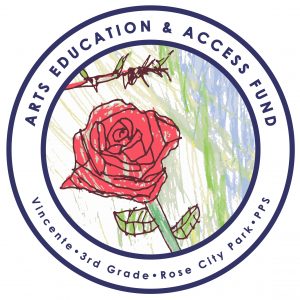
The Arts Education and Access Income Tax Fund (AEAF) helps support arts programing in six school districts within the City of Portland. As a reminder, this is not just about tax day in April. Your $35 supports arts education for youth all throughout the year. Look on social to repost, tag, and retweet #PDXaeaf #CreativeEconomy #WhereArtThouPDX #ArtsEducationForAll #RACCgrants #ArtCreatesHope #ArtEd
Your annual $35 helps to support arts education in six school districts: Centennial, David Douglas, Parkrose, Portland Public, Reynolds, and Riverdale. In 2012, residents of Portland passed this measure to provide one arts educator for every 500 students. The fund also supports community arts nonprofits through grants administered by the Regional Arts & Culture Council (RACC). For more information on the AEAF click here. The Arts Education and Access Fund Oversight Committee (AEAF Oversight Committee/AOC) is the volunteer-run body charged with ensuring compliance with the 2012 measure. Their meetings are open to the public. For more information click here.
________
 CALL TO ACTION
CALL TO ACTION
Legislative Update: Arts Education for All Act & More
To learn more about Congresswoman Suzanne Bonamici’s (D-OR1) Arts Education for All Act click here.
To advocate for H.R.5581 and to endorse click here. Currently, there are 51 co-sponsors in Congress.
To learn more about the Creative Economy Revitalization Act (CERA) introduced by Congresswoman Teresa Leger Fernandez (D-NM3) click here.
________
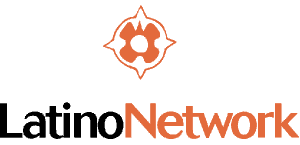
Where to go in our community?
Spotlight on the Latino Network
The Latino Network is a non-profit organization that has deep roots in supporting families, schools, and neighborhoods. One way this organization centers their outreach, advocacy, and engagement in school is through their participation in the Schools Uniting Neighborhoods (SUN) program through Multnomah County. Currently, the Latino Network is based in two school districts, Portland Public and Reynolds. “SUN Community Schools offer opportunities that support healthy child and youth development and family stability.” Arts and culture are also part of the diverse programming offered to youth: “Studio Latino offers youth a safe space after school to participate in arts & culture classes from Latino/a role models. The model exposes youth to new art forms while increasing positive skills and behaviors, encouraging academic success.” (Quotes from Latino Network.)
________
Arts Education Resources
A comprehensive curated resource list by RACC’s Arts Education Program is available for download. Click here.

Mt. Hood, C. Evans, photo taken from the Portland Japanese Garden, 06/2022.
________
Professional Development
Trauma Informed Care workshop series continues bi-annually
The Regional Arts & Culture Council, in partnership with Trauma Informed Oregon, is pleased to continue our workshops twice a year. Our first workshop will be on October 7, 2022. Look for an invitation in your inbox in the coming month if you are a K-12 arts educator in Multnomah County.
Subject -specific workshop for k-12 arts educators in Multnomah County
RACC listened to you! Thanks to our third-party survey, conducted in the spring of 2022 with K-12 arts educators in the City of Portland; we will offer professional development opportunities through a collaborative working partnership with several regional colleges and universities. We plan to convene this fall and offer our workshops in the spring of 2023. These will be free and available to all K-12 arts educators in Multnomah County. If you are not an arts educator but are interested to see if you can join, please reach out to artsedu@racc.org.
The Beat: Interviews from the Field
Meet James Dixon, Producing Artistic Director for BlaQ OUT, newly appointed volunteer member of the AEAF Oversight Committee, & Chair of the Equity Subcommittee.

You are a new member of the AEAF Oversight Committee. What brought you to the table? Do you have specific goals in mind and opportunities you see with arts education in particular?
I have been a huge supporter of the Arts Tax [Arts Education and Access Income Tax Fund] over the years and had heard many complaints from fellow artists, teachers and just regular Multnomah County taxpayers. I have served on several arts boards so I was excited to dive in and offer some support to this special fund. Equity with representation is very important to me and is one of my personal specific goals within arts education. The world is changing so rapidly and art is a vital part of that change. As a working local stage artist, I just don’t see enough representation, and that starts with showing all our students that there is a place for them in the arts. Their stories, lives and identities matter and so does that of our educators. I would also like to see more focus on closing the communications gaps, which prevent educators from providing quality education. I think much of that work starts with staying open to adjusting to emerging needs in our community, fostering more dialogue and remaining teachable as leaders.
What is the intersection of arts & culture in your life?
I am a Portland-based actor and director. I am also the Producing Artistic Director for the BlaQ OUT Theatre Festival, which is an unapologetically Black, Indigenous, Queer and gender diverse producing engine. I am also an ensemble member of Fuse Theatre Ensemble, which is partnered with BlaQ OUT through the OUT wright Theatre Festival.
Can you share with us something you are passionate about that you wish more folx would notice?
I feel it is paramount to see the arts as a vessel for change, dialogue and collective liberation. When we limit access to this valuable resource, we are essentially telling our fellow humans that their stories don’t matter. Art in any medium has the potential for personal growth and our students should have equal access. I challenge taxpayers to see this as an opportunity to invest in our future. If there are problems – let’s collaborate. If there is an obstacle – let’s tackle it collectively. It is life-changing for kids to see themselves represented and celebrated within our schools, in our galleries and on our stages. However, our largest obstacle is remaining in dialogue as a community and remaining flexible as emerging needs surface.
Jamesrdixon.com
________
Meet Hana Layson, PhD, Head of Youth and Educator Programs at the Portland Art Museum, newly appointed volunteer member of the AEAF Oversight Committee.
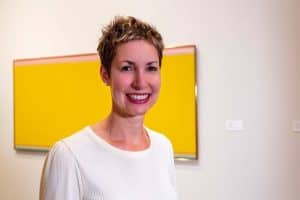 You are a new member of the AEAF Oversight Committee. What brought you to the table? Do you have specific goals in mind and opportunities you see with arts education in particular?
You are a new member of the AEAF Oversight Committee. What brought you to the table? Do you have specific goals in mind and opportunities you see with arts education in particular?
The AEAF has made such an enormous difference in arts education in Portland. It provides essential funding to place arts teachers in public schools across the city’s six school districts, and to increase equity and access for all students. It also provides support for arts organizations who play an important role by collaborating with schools and classroom teachers to form Portland’s arts education ecosystem. I joined the Oversight Committee so I could help support this work. Every child deserves to experience high-quality arts learning throughout their time in school. I’m so proud of Portlanders for overwhelmingly voting to restore public funding for arts education when they approved the AEAF in 2012. I want to do whatever I can to ensure that arts education in our city continues to improve in quality and reach and to make a difference in the lives of all Portland students.
What is the intersection of arts & culture in your life?
Like (I imagine) many of your newsletter readers, I feel the arts sustain my mental health, nourish my soul, and provide a catalyst for some of the most meaningful experiences I have with other humans. I love my job—connecting students and educators with art at the Portland Art Museum and getting to collaborate with artists and community partners across the region. I’m grateful for all the ways I experience the arts in the rest of my life as well. My son—a senior at Franklin High School—plays jazz and blues piano, and to be able to sit in my living room and hear him play is one of the deepest joys I know. I’ve had a longtime love of dance of all kinds and I do it or watch it as often as I can (so grateful that live performances have come back!). I’ve also always been a reader and writer.
For me, the most powerful arts experiences come from bringing different disciplines together. Every year in April, I collaborate with the PPS Visual and Performing Arts team to plan the HeART of Portland K-12 Student Arts Showcase, an event that celebrates the extraordinary work of arts students and teachers, and is a big thank you to Portlanders for the AEAF. This past April, we had Jefferson dancers performing in the Mesh exhibition, the Tubman Middle School clarinet choir playing in Isaka Shamsud-Din’s exhibition, and a closing, solo performance of La Llorona by a Grant High School freshman in front of Ideal PDX’s Frida and Diego Are Here. It was so powerful to see these student performers activating these visual art spaces and to see their work honored alongside the work of professional artists.
 Can you share with us something you are passionate about that you wish more folx would notice?
Can you share with us something you are passionate about that you wish more folx would notice?
Art in public spaces. One of the best parts of summer is outdoor music and dance. I loved Portland Parks & Rec’s first annual East Portland Arts Festival! And I love how public art is flourishing in the city, how I come across a new stunning or quirky or thought-provoking mural almost every day. Even small pieces like this one—words from James Baldwin carefully stitched into a bit of cloth that was stapled to a utility pole near Laurelhurst Park. I’m grateful for the moments of reflection these public art pieces provide and for how they invite us all to be in relation to each other. The organization Write Around Portland uses the wonderful phrase “Writing in community.” I appreciate how every art form has the power to activate that experience of community.
________
Meet Nancy Helmsworth, artist, newly elected RACC Board Member, newly retired PPS arts educator (Capitol Elementary), and former AEAF Oversight Committee: Metrics Chair and Interim Chairwoman of the AEAF Oversight Committee.
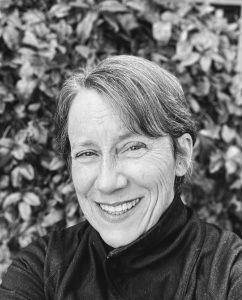 What brought you to the arts?
What brought you to the arts?
I have loved art since I was a child. What really captivated me were the sensory experiences like that of pencil/crayon on various papers, or the way paint is absorbed or not on certain surfaces, etc. I did plenty of inventive projects on my own and lots of paint-by-numbers. One thing that stumped me in the paint-by-numbers kit was that although the color selections were so beautiful, the paint was so gloppy and the brushes were poor quality and hard to control. That definitely influenced my teaching, where I made sure my students had good brushes, paper and quality materials.
What inspires you today as you move forward in your new role as a member of RACC’s Board?
As an artist and art educator, I have known about RACC for many years. I have looked to it as a clearinghouse for artists to find various local, regional and even national opportunities. That is a real service for artists. Through my time on the AOC, I learned more about RACC funding for the regional community. It is a unique and valuable organization. That said, I’m aware RACC does so much more than I yet know. I’m interested in learning how they currently support diverse regional arts, and how they connect to all citizens with various interests. Most importantly, I am excited to support RACC as they clarify and follow their improvement goals.
How have your previous experiences as an arts educator and AEAF Chairwoman helped inform how you see arts education programming in Oregon?
I cannot speak for the whole state of Oregon, but passing the Arts Education and Access Fund – aka The Arts Tax – was a huge plus for the area. The money fully funds one full time arts teacher for every 500 students in each of the districts. When I was the full time art teacher at Capitol Hill, I taught up to 400+ students. A full time specialist (art/music/dance/theater) can efficiently run a successful program for a whole school, giving the students a strong foundational experience. At full time staffing, it is a very EFFICIENT use of money, and let me say two things:
- Those teachers work really, really hard for those students, they wholly believe in their arts education mission.
- There are some extremely high quality teachers funded by the Arts Tax, whose assignments have the broadest responsibility and heaviest workload in each school district. These teachers are to be valued as the “glue” in the school community, knowing and supporting all the students.
Sadly, many of these positions in my old district are being re-designated from full time to two half time positions with the goal of including music and visual art as two half programs. Having both music and art is a wonderful goal, but doing each as a half time program is the problem. This rarely, if ever, is successful for the students, as they cannot get enough time in either program to learn and develop mastery.
This occurs when administrators and non-teachers make staffing decisions without understanding what is happening in the classrooms and listening to the expertise of the educators. The true experts, the teachers, are familiar with the national “best practices” (how often students get to go to their art class and how long is the session) and what is possible within the logistics of an elementary school.
I had a principal suggest that 30 minutes was long enough for students to get something valuable done in an art class. She wasn’t kidding; she was ignorant and had the power to make that decision. This is a weakness in the AEAF implementation – that the quality of the opportunity in the implementation was never standardized and principals and other decision makers were never given guidelines nor trained.
There is a simple solution to this though…
One of my core beliefs is that organizations are best informed when they make sure they listen to everyone, especially those doing the actual work. Those folks, the teachers, have first-hand knowledge of potential and limitations that are key to art programming implementation.
AND, transparency is essential to do quality work.
- Evaluate with honesty, withhold shame/blame, and use information/data to direct next steps.
- Make sure any system changes work for all parties involved, don’t leave anybody out!
- Be ready to evaluate and do it again as needed.
No need to feel bad about it. New programs, new anything have unexpected consequences…just observe and correct. The AEAF is a fantastic educational resource. Portland is so fortunate to have this funding.

2022 Stepping Stones, Finding Way, Nancy Helmsworth.
What brings you joy?
Though there is plenty to worry about in this world, I love this question as it reminds me that there is still so much joy in my life.
I truly love art, and say that it has been my “best friend” through my whole life. I am so glad I committed to it – making it, learning more skills, sharing it with others, especially children (who reciprocally taught me) and observing it in galleries, sidewalks and museums.
Moving around in the beautiful Pacific Northwest is a pleasure – hiking, swimming, and appreciating the landscape. Family, friends and food. Ha – I guess that covers a lot. Thanks for asking.
________
Featured Arts Organization: Fear No Music
 An interview with Jeff Payne, Director of the Young Composers Project
An interview with Jeff Payne, Director of the Young Composers Project
Fear No Music’s Young Composers Project (YCP) provides groundbreaking composition training and mentorship for youth interested in composing as a professional career or life passion. Students in grades 5 – 12 train with the region’s top professional musicians and composers, developing their new works through a series of workshops and public concerts. Scholarships are available.
When youth participate in the Young Composers Program, what do you hope they will take away from their experience?
I want every student to experience how creating their own music is more rewarding, and more personally and emotionally fulfilling, than simply downloading and listening to what someone else puts on the internet. The act of creating music helps a student understand who they are, how they fill a unique place in the world, and how they can share their emotions with others through sound. The workshops also strive to create a community of music creators and performers. Creating music can sometimes be a solitary undertaking, and by providing the students with live professionals to help in their writing processes, the workshops help build the bonds between them.

How can students and arts partners help encourage schools to include music composition in the arts?
When we get ready to present the concert of works by young composers each year, I encourage them to invite their teachers, their neighbors, and everyone they know. Letting teachers and others know about the amazing music that these students are creating is essential to developing greater support for creative work in the schools. Writing music develops so many skills that are not confined to music: attention to detail, understanding of complex systems, planning and following through, thinking outside the box, and envisioning and creating. Those skills carry over into so many other areas of education.
When you think of art, what inspires you?
There are many art forms that inspire me, but I get most excited when I hear a new voice who looks at the world in a totally different way, whether that is presented through music, literature, theatre, art or some other form. When I stop and say, “Wow, I’ve never heard anything like that before,” I want to know more about the person who created it and experience more of their work.
Application for this year’s program are due Oct. 1st. Scholarships ae available.

Young composers & musicians from Fear No Music in Lincoln Hall at Portland State University, May 2022.
 The Smithsonian American Art Museum and Renwick Gallery have wonderful fall programming. Many of these opportunities are virtual and free. Click here to learn more.
The Smithsonian American Art Museum and Renwick Gallery have wonderful fall programming. Many of these opportunities are virtual and free. Click here to learn more.
Direct from the Portland Art Museum website: The Poster Project
 With generous support from the PGE Foundation, the Portland Art Museum has created a set of posters featuring works across the permanent collections. Posters are available free of charge to educators in Oregon and Washington. Hang them in classrooms, hallways, and libraries or take them out for specific activities and lessons. Our goal is to provide educators and students with artworks you can study and enjoy wherever you are.
With generous support from the PGE Foundation, the Portland Art Museum has created a set of posters featuring works across the permanent collections. Posters are available free of charge to educators in Oregon and Washington. Hang them in classrooms, hallways, and libraries or take them out for specific activities and lessons. Our goal is to provide educators and students with artworks you can study and enjoy wherever you are.
Spanish-language PDFs developed with the support and collaboration of AB Cultural Drivers, LLC.
Beginning September 2021, we are proud to partner with Relay Resources to package and mail posters to you. Please allow 2-3 weeks for delivery. Click here to request a poster.

Be sure to check out artlook®oregon to find arts education programing for the summer. Over 250 arts organizations in the tri-county area are listed!
What brings YOU joy?
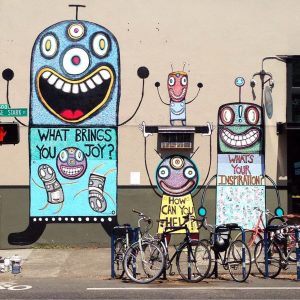
Questions for Humans, Gary Hirsch, mural.
Please share with us by emailing cevans@racc.org.
Please email the Arts Education Program about any summer programming opportunities so we may include them in our short summer one-pager of #newsforyourheART.
If you would like to highlight student work or a recent performance, please share with us! Thank you.
Workshops • Events • Lectures

Hosmer Brook Trout, Analee Fuentes, 2019.
Here is a curated list of lectures, workshops, events, and conferences from local colleges and universities. If you know of an event, workshop, performance, lecture, or art exhibition that is coming up, please go here to submit an opportunity.
Chapman Elementary in NW Portland is famous for their Vaux Swifts. Join in this family friendly experience and be part of this beloved ritual, celebrated each fall. Click here for more information. FREE
Latinx Heritage Month– Celebrate from September 15th through October 15th.
Portland Latin American Film Festival at the Hollywood Theatre– SAVE THE DATE: Opening of the Annual Portland Latin American Film Festival at the Hollywood Theater in person on the big silver screen. September 28, 2022.
Oregon Humanities is offering the online fall course Humanity in Perspective (HIP), a free college-credit class and learning community for students 18 years or older in Oregon who face barriers to continuing their education. Learn more and apply. Classes begin in early January 2023. Check out their free curriculum to use in the classroom. Best for grades 9-12.
FREE Museum Days– Go to the Portland Art Museum, the Portland Japanese Garden, or OMSI for free! Show your Bank of America, Merrill Lynch, or Bank of America Private Bank credit or debit card and a photo ID on the first Saturday or Sunday of the month for one free general admission ticket. Always scheduled on the first Saturday and Sunday of the month, continuing into 2023.
- October 1 and 2
- November 5 and 6
- December 3 and 4
Teacher Guides for Latinx Heritage Month (free)
Portland Textile Month- begins Oct 1. The theme is Regeneration
Portland Open Studios– October 8 & 9, 15 & 16 from 10-5pm (free) To see the artists click here.
Portland Film Festival– October 12-22, 2022 (various venues)
Portland Pumpkin Patches, Corn Mazes and Hayrides– Local fall family-friendly activities and events
**Some workshops/events/lectures might have changed due to COVID-19 or other reasons. Please check before you make plans.
The Scoop – Grow your Brain
*Featured artwork from RACC’s public art database Canvas NW.
Designed by Andrea Blanco, RACC Graphic Design and Content Specialist.
Regional Arts & Culture Council, Arts Education Program.
We welcome feedback and suggestions. Please reach out to Chanda Evans (she/her), cevans@racc.org
Disclaimer: The Regional Arts & Culture Council is not held liable for the materials or images in this newsletter.
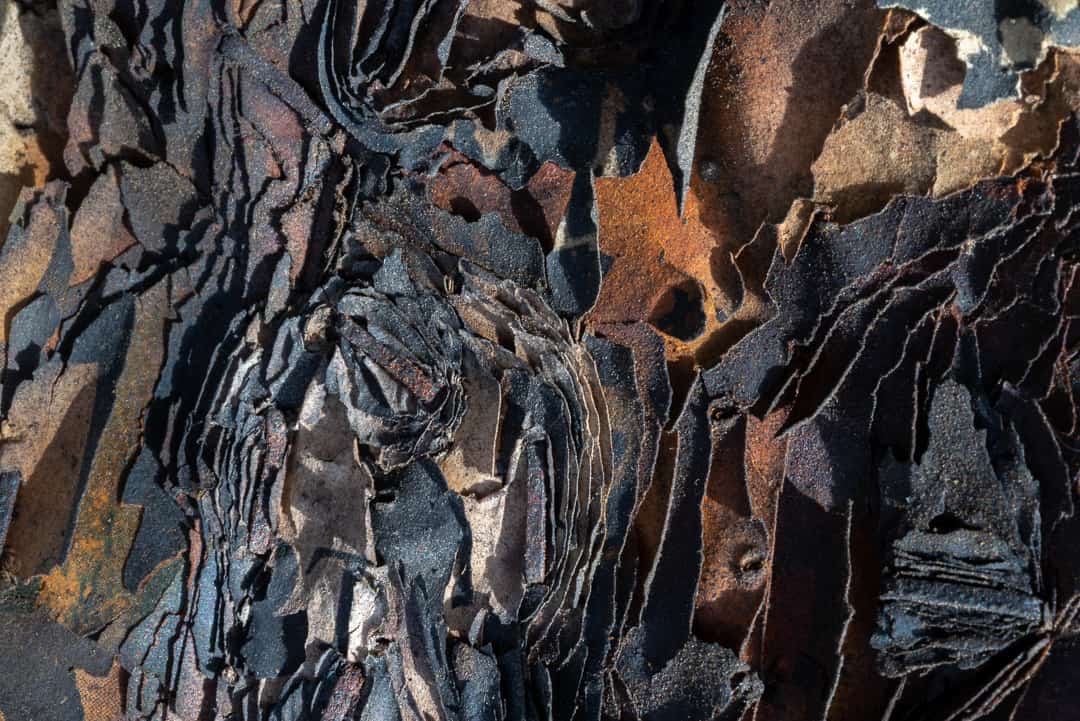
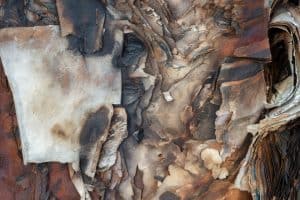
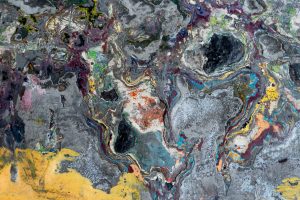


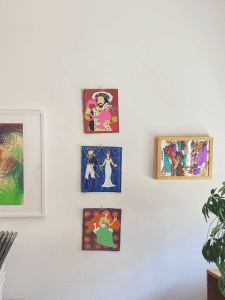



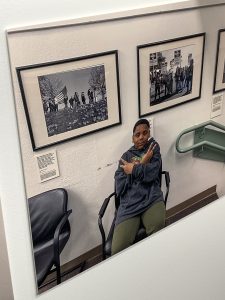




 CALL TO ACTION
CALL TO ACTION


 You are a new member of the AEAF Oversight Committee. What brought you to the table? Do you have specific goals in mind and opportunities you see with arts education in particular?
You are a new member of the AEAF Oversight Committee. What brought you to the table? Do you have specific goals in mind and opportunities you see with arts education in particular? Can you share with us something you are passionate about that you wish more folx would notice?
Can you share with us something you are passionate about that you wish more folx would notice? What brought you to the arts?
What brought you to the arts?
 An interview with Jeff Payne, Director of the Young Composers Project
An interview with Jeff Payne, Director of the Young Composers Project

 The Smithsonian American Art Museum and Renwick Gallery have wonderful fall programming. Many of these opportunities are virtual and
The Smithsonian American Art Museum and Renwick Gallery have wonderful fall programming. Many of these opportunities are virtual and  With generous support from the PGE Foundation, the Portland Art Museum has created a set of posters featuring works across the permanent collections. Posters are available free of charge to educators in Oregon and Washington. Hang them in classrooms, hallways, and libraries or take them out for specific activities and lessons. Our goal is to provide educators and students with artworks you can study and enjoy wherever you are.
With generous support from the PGE Foundation, the Portland Art Museum has created a set of posters featuring works across the permanent collections. Posters are available free of charge to educators in Oregon and Washington. Hang them in classrooms, hallways, and libraries or take them out for specific activities and lessons. Our goal is to provide educators and students with artworks you can study and enjoy wherever you are.







